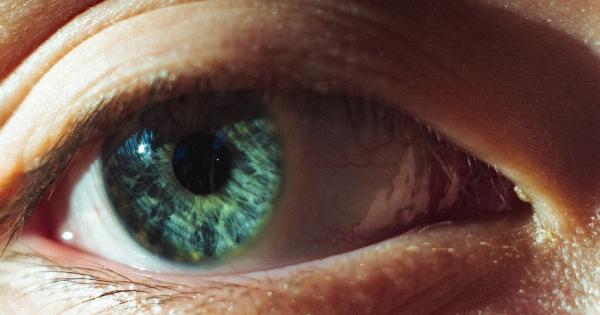Bleeding in the eye, also known as subconjunctival hemorrhage, occurs when blood vessels on the white part of the eye, called the conjunctiva, break and bleed. This condition is usually not serious and often resolves without treatment.
However, it can be visually alarming and may have various causes. In this article, we will discuss the common causes of bleeding in the eye, as well as potential treatment options.
1. Trauma or Injury
Injury or trauma to the eye is one of the most common causes of bleeding. This can happen from direct impact to the eye, such as getting hit by a ball or finger, or due to an accident or fall.
The forceful impact on the eye can lead to the rupture of blood vessels and subsequent bleeding. In such cases, it is important to seek immediate medical attention to rule out any further damage.
2. Eye Strain
Excessive straining of the eyes can cause bleeding in the eye. This can occur due to activities that require intense and prolonged focus, such as reading for long periods or using digital devices without taking breaks.
The strain on the eye’s blood vessels can result in their rupture and subsequent bleeding.
3. High Blood Pressure
High blood pressure, also known as hypertension, can cause bleeding in the eye. The increased pressure within the blood vessels can weaken them, making them more susceptible to rupture.
People with uncontrolled high blood pressure should monitor their eye health regularly and seek medical treatment to manage their condition.
4. Blood Thinners and Anticoagulants
Certain medications, such as blood thinners and anticoagulants, can increase the risk of bleeding in the eye. These medications work by inhibiting the clotting process, which can lead to spontaneous bleeding or prolong bleeding after an injury.
If you are on these medications and experience bleeding in the eye, consult your healthcare provider for guidance.
5. Eye Infections
Infections of the eye, such as conjunctivitis or pink eye, can sometimes lead to bleeding in the eye. These infections cause inflammation and irritation, which can result in the rupture of blood vessels in the conjunctiva.
If you suspect an eye infection, it is important to see an eye doctor for an accurate diagnosis and appropriate treatment.
6. Eye Surgery
Some eye surgeries, particularly invasive procedures, can cause bleeding in the eye as a potential side effect. Common eye surgeries such as cataract surgery or LASIK may occasionally result in subconjunctival hemorrhage.
It is essential to follow post-operative care instructions provided by your eye surgeon to ensure proper healing.
7. Blood Disorders
Certain blood disorders, such as hemophilia or von Willebrand disease, can increase the risk of bleeding in various parts of the body, including the eye.
These disorders affect the body’s clotting ability, making it easier for blood vessels to rupture and bleed. If you have a known blood disorder and experience bleeding in the eye, consult with your hematologist or healthcare provider.
8. Diabetes
Diabetes can lead to various complications, including eye problems like diabetic retinopathy. In diabetic retinopathy, the blood vessels in the retina become damaged, which may result in bleeding in the eye.
Proper management and control of blood sugar levels are crucial to reduce the risk of diabetic eye complications.
9. Allergic Reactions
Severe allergic reactions, particularly those that affect the ocular area, can sometimes cause bleeding in the eye. The inflammation and irritation caused by the allergens can lead to blood vessel rupture.
If you experience severe allergic reactions and notice bleeding in your eye, seek medical attention promptly for proper evaluation and treatment.
10. Underlying Health Conditions
Underlying health conditions, such as blood clotting disorders or autoimmune diseases, can contribute to bleeding in the eye.
Conditions like sickle cell anemia or lupus can increase the vulnerability of blood vessels to rupture, leading to bleeding in various parts of the body, including the eye. Appropriate medical management and regular check-ups are essential for those with these conditions.




























